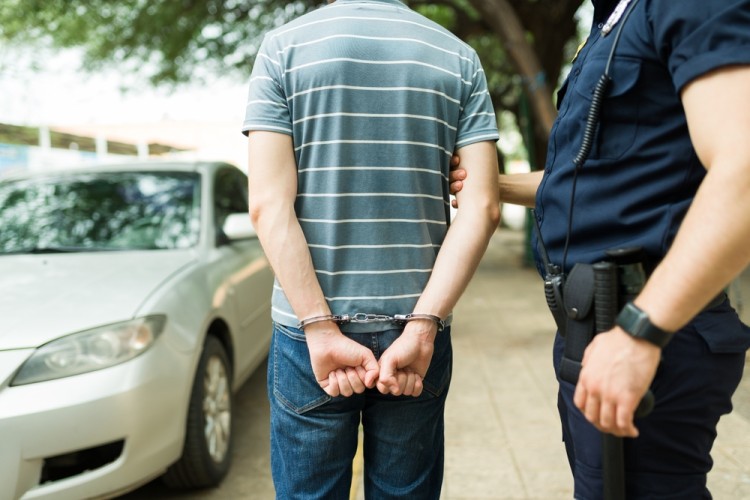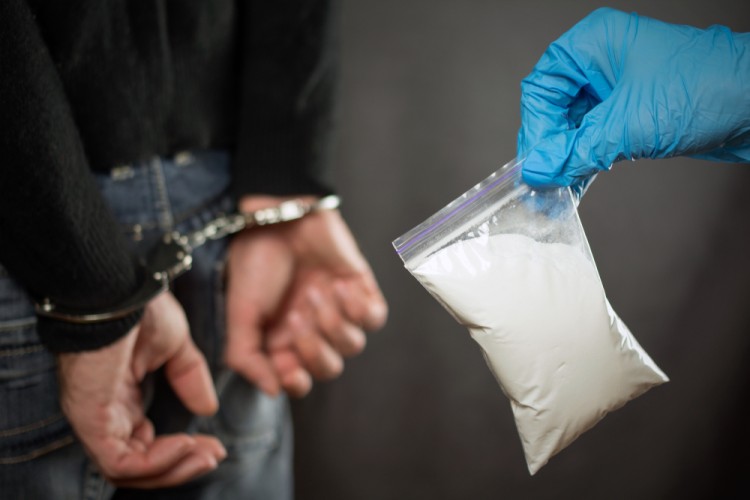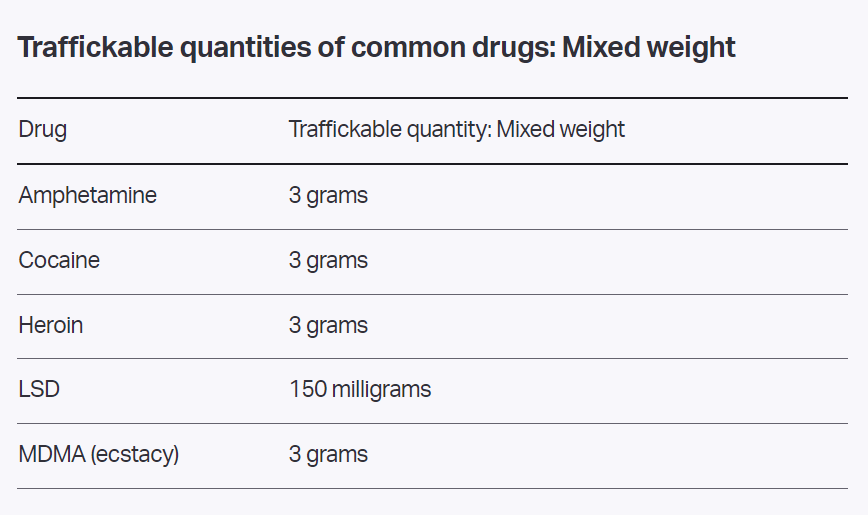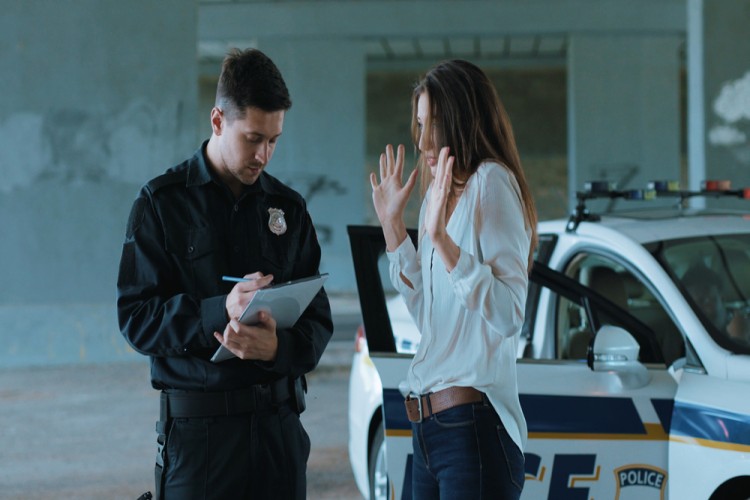
You’ve just been accused of a drug offence. What is next? It can be confusing and stressful to face minor or serious drug offences as they can risk your livelihood, your license, your reputation, and even your liberty.
This article will guide you through types of drug charges, your rights, how to uphold them, and how a drug offence lawyer can help you win your case.

In Victorian law, the term ‘drug’ means a drug of dependence, and a more detailed definition is in Section 4(1) and Schedule 11 of the Drugs, Poisons, and Controlled Substances Act 1981 (Vic) (‘DPCS Act‘).
This Act was amended in 2017 by adding synthetic cannabis and other synthetic substances to the list of dependence, as well as ‘analogues’ (or structurally modified versions) of drugs. The main categories of drug offences are use, possession, cultivation, and trafficking.
The ‘use’ of a drug of dependence is an offence, and this means smoking, inhaling the fumes of, or introducing it into a person’s body, according to Section 70(1) of the DPCS Act.
Using a drug of dependence (such as marijuana) carries a penalty of up to 5 pu, and there is no jail penalty even for subsequent offences (s 75(a). However, the use of other drugs can mean a maximum penalty of up to 30 pu, up to a year in prison, or both.
With this in mind, Victorian Police and Victorian Courts have alternative schemes for people who commit drug offences, such as diversion or rehabilitation in the case of mental health issues.
More serious than drug ‘use’ is possession, which is an Indictable offence under Section 73 of the DPCS Act. Under Common Law, someone is in possession of a drug if they have custody or physical control of the drug.
‘Possession’ has an extended meaning: the drugs are on the land or premises occupied by the person, and the drugs are enjoyed or controlled in any place whatsoever.
What are the penalties for possession? According to Section 73 (1) (b), the maximum penalty for possession of any drug (where it isn’t related to trafficking) is a fine of 30 pu, imprisonment for 1 year, or both.
Cultivating a non-commercial quantity of drugs (a narcotic plant) is an indictable offence, triable summarily. A narcotic plant includes a cutting of the plant, whether or not it has roots, and could include cannabis, the opium poppy, or the coca plant.
According to Section 70 (1) of the DPCS Act, cultivation is to sow, plant, end, graft, divide, transplant, nurture, or harvest a narcotic plant.
Penalties for cultivation include a fine of 20 pu, imprisonment of up to 1 year, or both if the cultivating is not related to trafficking. The maximum penalty for cultivation (where it is related to trafficking) is up to 15 years, according to Section 72B(b) of the DPCS Act.
With larger commercial quantities, the maximum penalty is life imprisonment and a fine of up to 2000 pu, as stated in Section 72 of the DPCS Act.

As an indictable offence and tried summarily for amounts under a commercial quantity, trafficking means ‘movement from source to the ultimate user in the course of trade’, and requires an activity performed in a commercial setting and contact with the alleged trafficker and at least one other person.
Trafficking can be proved by direct evidence (such as observing a sale), inference (a conclusion from a set of facts), or admission, which is a confession to the police.
What are some of the penalties for trafficking? According to Section 71, the maximum penalty for trafficking non-commercial quantities heard on indictment is 15 years imprisonment. For larger commercial quantities, the maximum penalty is life imprisonment and a fine of up to 5000 pu.
The amount of drug alleged to be possessed or trafficked has an impact on the penalty. For example, a small quantity has lower penalties; having 50 grams or less of fresh or dried cannabis as a first offence means there is a presumption of favour of a Section 76 bond. However, a traffickable quantity is defined by the weight or number of plants and has more severe penalties. In any case, you want an experienced criminal lawyer on your side.

When speaking to the police, what are your rights and responsibilities?
According to Legal Aid, generally, you do have a right to remain silent and don’t have to answer what the police are asking you, as this can be used against you.
However, you legally must tell the police your name, address, or reason for being in or near a police station. In most cases, you can tell the police you want to speak to a drug offence lawyer before answering more questions.
A police officer can only ask for your name and address if they believe you have committed an offence or are about to commit an offence. Other circumstances where they can ask include:
If police want you to go with them to a police station, you can refuse unless they are arresting you or in circumstances such as:
In any case, always ask the police why they want you to go with them. Police must also give you their name, police station, and rank, and you can request this in writing.
Police have a right to ask why you are at or near a police station. If they think there isn’t a legitimate reason, they can ask for your name and address.
Legitimate reasons for being at a station are asking police for help, reporting a crime, giving information to the police, or being required to be there, such as due to bail conditions.
Police or protective service officers can ask you to leave if you don’t have a reason for being there, or it is necessary to preserve peace or maintain security.
You can be removed, arrested, or fined 5 penalty units if you don’t answer these questions, don’t leave when directed, try to stop an officer carrying out these duties, or try to stop a person from going in or leaving the police station.
A statement is a written document to the police, including your version of events. You may be asked to make a statement as a suspect.
If you are a suspect of a drug offence, you do not have to make a statement. If you choose to, the police can charge you based on what you’ve said in it. If there is evidence that you broke the law, the police will charge you. Sometimes, the only evidence against you is your statement, or your police-recorded interview, so it is critical to have an experienced drug offence lawyer to support your case.
If you choose to make a statement, police will ask you to sign it under oath, promising that the statement is true.
Make sure to read the statement carefully, as police can charge you with perjury if you make an untrue statement. Never sign a statement unless you agree with everything listed. You can change this statement before you sign it.
Let’s look at the drug-driving infringement process. If you’ve been issued an infringement notice for drug driving after taking an oral fluid sample, how will this notice be dealt with? As always, it is important to know your rights.
If your laboratory test result confirms that your oral fluid sample contains an illicit drug, the infringement remains enforceable, and your obligations (such as your right to object) are detailed on the infringement notice. You will not be notified of the laboratory test result unless you object to the infringement.
You can make this objection within 28 days after the date of infringement, and if you object, Victoria Police will seek to have your matter determined in court. If you don’t object, you will automatically receive a conviction for the offence, regardless of whether the fine has been paid.
For Victims of Crime in Victoria, the burden of proof means that the prosecution must prove the accused is guilty beyond a reasonable doubt. This standard is known as the ‘burden of proof’.
For example, if drugs are found on premises, an accused uses, occupies or enjoys, then the accused is guilty of drug possession unless they can prove–on the balance of probabilities–that they were not in common law possession of the drug. This is a ‘deeming’ provision shifting the burden of proof to the accused.
Why is it so important to obtain legal advice from a drug offence lawyer? A criminal lawyer can give you advice on your rights prior to a police interview. Depending on how serious the charge is, a lawyer may need to arrange a bail application.
If you’re looking for a drug offence lawyer servicing Fairfield, Sunshine, Preston, Ringwood, or Dallas residents, your case will be heard in the appropriate court, and you can receive a fair and balanced ruling.
A good lawyer will take the time to understand your personal circumstances, the finer details of a case and provide the right guidance.
If you need legal representation for alleged criminal offences, you want someone you can trust in your corner.
Whether you’ve been accused of possession, use, cultivation, or trafficking, May Lawyers is one of the best criminal lawyers in Melbourne who can protect your rights.
As an Accredited Specialist in criminal law from the Law Institute of Victoria, Will May approaches all cases as if they were his own, providing the level of assistance he would expect from an experienced legal professional. For assistance with Bail Applications, Criminal Trials, Traffic Offences, or Drug Offences, contact us at 0415 582 404 or 03 9642 2137 for free, no-obligation legal advice and a free case evaluation.